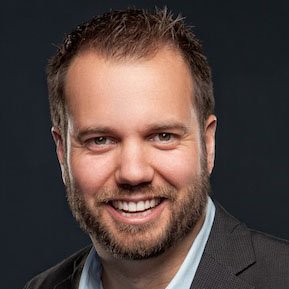What’s your big prediction about content marketing in 2019?

When I asked John Hall that question, he had a one-word answer: distribution. When I asked John Hall that question, he had a one-word answer: distribution.John is the co-founder of the content marketing firm Influence & Co. and the co-founder of a new venture, the scheduling and time management software Calendar. He’s also the author of the content marketing book “Top of Mind.”
So when John and I started talking about the state of content marketing, I wasn’t surprised that he had some strong opinions. As we all know, content marketing is in a boom time — everyone wants to be in the content game. But with more competition than ever before, how can anyone stand out? In John’s mind, content marketing success starts with building better relationships.
For your book “Top of Mind” you studied how people are using content. What was one thing that surprised you in your research?
When I was gathering different research, I conducted a survey of 20 people that I know and respect. I asked them “What’s important to you in life? What’s important to you in business? What does success mean to you? What makes you happy?”
It ended up that relationships were key answers to all of those questions — both professional relationships and personal relationships.
So I’d say, “OK, so these relationships are important to you. Do you do everything you can to engage these people and do you work on relationships?” A lot of the people said no.
Then I dove deeper to find out why. They all said because they just don’t think about it, or they get busy. Ninety percent of people said making time for relationships just wasn’t something that they were used to doing. They only did it when it was convenient or easy.
You’re so right. We all know that relationships are what matter, but we don’t really use our time to work on them. How can we change that?
It’s all about changing your mindset. One way you can grow relationships is really simple — just by becoming a better listener. Here’s what that has meant for me. I used to be a talker. I talked, talked, talked to my friends about what I thought was interesting. What ended up happening was I was a less engaging person in general. I realized I had to train my brain to listen to people. I mean truly listen and understand what’s engaging to someone else. What’s valuable to them? What barriers do they have?
It’s worth spending the time on, and once you start focusing on listening it gets easier. It becomes who you are and not just a tactic.
So true thought leadership is about listening, right?
Being a true thought leader is about moving from “me marketing” to “you marketing.”
We used to be in this “me” world, where everything was about “me”: my product, my service, what I can do, what I think is interesting. I think it’s changing to a “you “world, where I mean “you,” the customer. What is most valuable to the audience? How can you earn their trust? Ultimately people want to buy from people they trust. And especially as technology starts to be a bigger part of our lives, trust will play a bigger part in our lives, because that’s what will differentiate companies.
This trend is not just something that I’ve had success with, but I often see other successful speakers do well. I recently was listed on a guest speaker list and the one consistency I saw on the list was these are all people who are very customer focused and great at listening to people’s challenges.
How do you help people turn their ideas into published thought leadership?
Writing isn’t most people’s biggest strength. Or if writing is their biggest strength, they don’t have time.
What people do have is expertise, experiences, a point of view. So that’s what we pull from them. We ask them the right questions and get them excited. We know that content is more personal when there are more examples and when there’s more heart. The content does better.
There’s a lot of talk these days about content shock. As a content marketing professional, how do you feel about it?
People used to say content is king. I’ve probably said that 1,000 times. Content is still king, but these days distribution is just as important. It’s important for our team to understand not just what goes into content, but also where the right audience is.
Why do you think distribution has become so much more important?
There’s just more content out there, and there’s more coming. I guarantee you that in two to three years there will be more pieces of content published online than ever before. We’re only at the beginning. There are still so many people that never even really got into content marketing.
Distribution is going to take over. How are you going to differentiate when there’s a ton of content out there? Be amazing at distribution. If you become amazing at content distribution, and you reach the right people, you’re going to win.
I think leveraging the content has changed a ton. There are more channels of content. Seven or eight years ago, you get on TechCrunch or WSJ and your site’s shut down the next day and you’re like “Wow. All those people saw it and they ended up shutting down our site because we got so much attraction.” It’s rare for something to happen like that these days.
How do you help marketers connect content with the rest of the business?
Content is more valuable to other parts of the business than ever before. Thought leadership at first was a silo. Now it’s more core to the company because it’s more valuable engaging content. If you’re listening to people, getting the right information, the right data and then creating content from that, there’s not just a marketing benefit.
That content is useful for investor communications, recruiting, training. For example, we’ve published content and then we’ll send it to our potential recruits so that they know what they’re getting into in our world. A lot of our employees feel like they’ve been almost trained before they even start because we sent them content in advance.
The smartest marketing teams moving forward are going to break down department silos and say, “We’re creating great, engaging thought-leadership content that cannot just be used in marketing. How can I help you? What content can help this company overall so that we can thrive in this industry and not just have a cool marketing team?”




